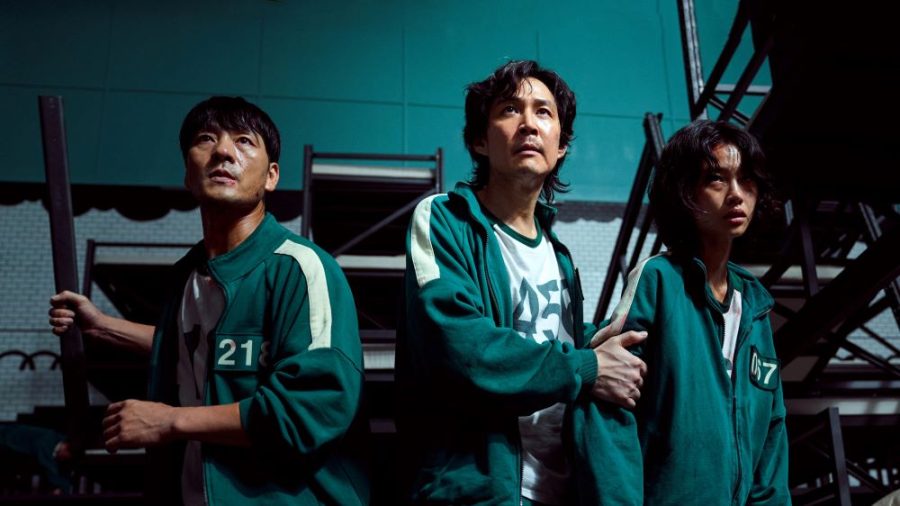Squid Game and Capitalism
December 10, 2021
The Netflix show Squid Game has quickly gained traction throughout the world. The show takes place in South Korea and is about a selected group of people who are given the chance to participate in a game. If the contestant wins the game, they get 45.6 billion won (South Korean currency). The game, however, brings a twist: Once the first game began, participants and the audience realized the games were between life and death. The show definitively insinuates the idea of what an extreme capitalist world would look like in society.
Capitalism is a topic that has been talked about widely by politicians, the media, and society for years. Squid Game ensured it got its message through by studying the behavior of its participants, and in a sense prematurely knowing the actions these characters would commit. The show begins by introducing the characters which consist of Sae-Byeok, Sang-Woo, Gi-Hung, Deok-Su, Il-Nam, and Mi-Nyeo. Each of these characters, when approached, was already struggling financially. As a whole, the show instills aspects of the downsides of capitalism and the extremes struggling humans will go through in order to survive. In the show, the contestants are to meet at random times and random places with the game runners. From there, the contestants were taken to a secret location. The idea behind the games one was competing in were children’s games from the childhoods of the participants.
When the participants begin the first game, red light green light, they soon start to realize they must decide to either continue with the possibility of winning, or accept their fate in the next game. After the first game, they are given the chance to opt-out of the game. However, once the majority voted to opt-out, they still willingly had the option of returning to the game. Many of the players did in fact choose to go back to the game after realizing going back to their normal life is something that will make them miserable since they are largely in debt.
Ultimately, the games turn out to be a twisted game of capitalistic entertainment. We find out later in the show that rich and powerful figures are watching the players for their own entertainment purposes. One may say that this resembles today’s society in which governments or secret societies begin to seek entertainment from the suffering of the different levels of the social hierarchy. The incentive of those 45.6 billion won is a hint as to how capitalism has caused many to suffer both physically, mentally, and financially. Free will is defined as the ability of one to decide for themselves based on subjects such as logic, emotions, heart, etc. However, free will may be tied to the money and power that stems from capitalism in which these topics influence the behavior of the consumers. Throughout the show, the runners of the game manipulate the participants by studying their future predicted behavior. It can be said that from the get-go, the players were not necessarily free to make their own decisions. This can be compared to today’s society where money-hungry companies examine society’s behavior and manipulate society into buying their products.
Essentially, the show gives examples of how if capitalism continues unchecked in society, it may cause society to fall apart. The series seemed to share insight on how perhaps world leaders are doing the same to consumers through alteration, and taking pleasure from watching those of a lower class suffer. The idea that the show provides insight into capitalistic thoughts, warns us of potential future actions that are to come.

